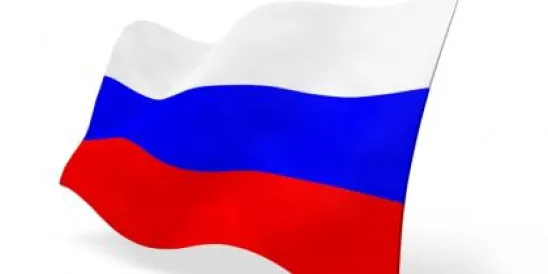On July 29, 2014, the EU and United States took coordinated steps to expand sanctions targeting the Russian financial services, energy, and defense sectors, including restrictions on energy-related exports to Russia. The EU also took steps to limit certain types of trade and investment in Crimea, while both the EU and United States identified additional parties subject to asset-freezing measures. As detailed below, the new measures have broad implications for trade and investment activities in the region, and Russia is threatening to retaliate against U.S. and EU firms.
Specifically, the Council of the European Union (“EU Council”) agreed to impose a range of import and export restrictions relating to arms, dual-use goods and technologies, as well as certain equipment and technologies for the Russian oil industry that are not classified as dual-use items. Those restrictions will apply only to new contracts and will be implemented by a Council Regulation expected to be published late in the day on July 31, 2014. Separately, the EU Council prohibited buying and selling certain new bonds, equity, or similar financial instruments issued by Russian state-owned banks; this prohibition is similarly expected to be published on July 31, 2014.
The EU Council also agreed to restrictions on new investment in infrastructure projects in Crimea and Sevastopol in the transport, telecommunications, and energy sectors and in relation to the exploitation of oil, gas and minerals. Those new measures also prohibit the export to Crimea of key equipment for the same six sectors as well as related finance and insurance services. They are include in Council Regulation 825/2014 and were published late in the day on July 30, 2014.
Finally, also on July 30, 2014, the EU published Council Regulation 826/2014, which designated 8 additional persons and 3 entities as subject to asset freezing measures. Together with the new designations published on July 25, 2014, this brings the number of designated parties to 95 persons and 23 entities.
In the United States, the Commerce and Treasury Departments both tightened U.S. trade control measures on Russia. The U.S. Commerce Department's Bureau of Industry and Security (“BIS”) announced a new policy of denying exports, reexports, and foreign transfers of certain items – including certain items that do not currently require a BIS license – for use in Russia's energy sector in the exploration or production from deepwater, Arctic offshore, or shale projects that have the potential to produce oil. The U.S. Treasury Department’s Office of Foreign Assets Control (“OFAC”) added three Russian banks – Bank of Moscow, Russian Agricultural Bank, and VTB Bank OAO – to its recently announced Sectoral Sanctions Identifications List (“SSI List”), limiting certain new debt and new equity transactions by U.S. persons or within the United States with these banks and entities owned 50% or more by them. OFAC also provided guidance on the application of the new sectoral sanctions. Finally, both agencies targeted a Russian shipbuilding company for comprehensive restrictions, including full asset-blocking and restrictions on trade in U.S.-regulated items by any person (including non-U.S. persons) with that company.
Impending EU Sanctions Measures
On July 29, 2014, the EU Council agreed to impose a range of sanctions targeting Russia’s defense, energy, and financial services sectors. The specific restrictions will be set out in a Council Regulation, the publication of which is expected for July 31, 2014. We will provide a more detailed briefing concerning the EU measures once the Council regulations are published. However, based on the EU Council’s press release published on July 29, 2014 and numerous press reports, the new measures will include the following:
-
Financial sector restrictions.The newly adopted restrictions will prohibit EU parties from transacting in, providing financing or investment services for, or otherwise dealing in ransferable securities and money-market instruments with a maturity exceeding 90 days, issued after the entry into force of the measures by (a) a credit institution or other institution established in Russia and having an explicit mandate to promote competitiveness of the Russian Federation economy, its diversification and encouragement of investment, of which Russia, as well as Russian nationals, urban and municipal districts, public bodies, corporations and agencies own jointly or separately more than 50% of the proprietary rights; or (b) a legal person, entity or body acting on behalf of an entity referred to under (a), or whose proprietary rights are owned more than 50% by an entity referred to under (a).
-
Arms embargo.The new measures will also impose an embargo on the import and export of arms and related material from and to Russia, which will cover all items on the EU’s Common Military List. Importantly, they will allow the competent national authorities to authorize the export of arms in execution of an obligation arising from a contract or an agreement concluded before the entry into force of the embargo.
-
Prohibition to export dual-use Items.The EU Council has also agreed to a prohibition against the export of dual-use goods and technologies, as listed in Annex I to Council Regulation 428/2009 (the EU Dual-Use Regulation) for military end uses in Russia or to Russian military end-users. It is not clear if and how the concept of “military end-users” will be defined by the new Council Regulation.
-
Restrictions on the export of equipment and technology for the oil industry.The new measures will further prohibit the export of certain listed equipment and technology for the Russian oil industry that are destined for deepwater oil exploration and production, arctic oil exploration or production, and shale oil projects in Russia. The listed items not destined for those end-uses will be subject to a prior authorization regime. While the list of restricted items will be known with certainty only once it is published in the EU’s Official Journal, a draft of the list that has been circulated indicates that it will encompass 32 items comprising a range of line and drill pipes, casing and tubing, drilling tools, pumps, and vessels.
It appears that at least some of the measures noted above will apply only to new contract ˗ thus, existing obligations may be exempted.
Additional Impending Restrictions Relating to Crimea
Further to its discussions on July 16, 2014, as reported in our July 17, 2014 client alert, the EU Council has imposed additional trade and investment restrictions on Crimea and Sevastopol (the Council has separately delineated Sevastapol for reasons that are not clear ˗ it is located entirely within Crimea, and the Ukrainian Government claims the entirety of Sevastapol as within the territory of Ukraine). These restrictions are included in Council Regulation 825/2014, which amended Council Regulation 692/2014, and comprise a ban on new investment in infrastructure projects in key economy sectors of Crimea and Sevastopol. Specifically, the new provisions, which are framed in a manner similar to the existing EU energy sector sanctions against Iran and Syria1, prohibit:
-
the granting of any financial loan or credit specifically relating to the creation, acquisition or development of infrastructure in the areas of transport, telecommunications, or energy, or the exploitation of oil, gas or mineral resources2 in Crimea or Sevastopol;
-
the acquisition or extension of a participation, including the acquisition in full and the acquisition of shares and securities of a participating nature, in enterprises established in Crimea or Sevastopol that are engaged in the creation, acquisition or development of infrastructure in the areas of transport, telecommunications or energy or in the exploitation of oil, gas or mineral resources in Crimea or Sevastopol;
-
the creation of any joint venture relating to the creation, acquisition or development of infrastructure in the areas of transport, telecommunications or energy, or to the exploitation of oil, gas or mineral resources in Crimea or Sevastopol.
Provision of technical assistance and brokering services related to those investment activities is also prohibited. However, the foregoing restrictions do not apply to investments that are required by an agreement or contract concluded before July 30, 2014 and have been notified to the competent Member State authority at least 10 working days in advance.
Export of the “key equipment or technology” for the above-mentioned six sectors – as listed in Annex III to Council Regulation 692/2014 – as well as provision of technical assistance, brokering services, financing, and insurance services related to such transactions are also prohibited. However, the prohibitions do not apply to the execution, until October 28, 2014, of transactions required by a trade contract concluded before July 30, 2014, or by ancillary contracts necessary for the execution of such contracts, provided that they are notified at least 10 working days in advance to the competent Member State authority.
Additional EU Designations
Council Regulation 826/2014, which was published on July 30, 2014, designated 8 additional persons and 3 entities as subject to the asset freezing measures. The newly designated parties include Arkady Rotenberg, a major Russian businessman and a long-time acquaintance of President Vladimir Putin; Yuriy Kovalchuk and Nikolay Shamalov, both of whom are acquaintances of Mr. Putin and the largest shareholders of Bank Rossiya; defense company Almaz-Antey; aviation company Dobrolet; and Russian National Commercial Bank (RNCB), a Crimean-established bank. (Of note, Boris Rotenberg, a Russian businessman and the brother of Arkady Rotenberg who also is rumored to have close ties to Mr. Putin, has not been designated.)
These measures follow the expansion of the legal basis – by Council Regulation 811/2014 – under which the EU may sanction individuals and entities that provide material or financial support to, or are benefiting from, Russian decision-makers responsible for the annexation of Crimea and Sevastopol or the destabilization of Eastern Ukraine.
The new measures also follow the designation of 15 individuals and 18 entities – including Russian FSB officers, Ukrainian separatists, and several entities whose ownership has been transferred following the purported annexation of Crimea by Russia – by Council Regulation 810/2014, adopted on July 25.
As with the previously imposed asset freezing measures, all funds and “economic resources” belonging to, owned, held, or controlled by the newly designated parties must be frozen. In addition, the making available of funds or “economic resources,” directly or indirectly, to or for the benefit of these parties is prohibited.
New U.S. Sanctions Measures
BIS Expands Restrictions on Energy-Related Exports to Russia and Adds Russian Defense and Shipbuilding Company to Entity List
On July 29, 2014,in response to Russia's continued actions supporting separatists in Ukraine, BIS announced that it is instituting a policy denying exports, reexports, and foreign transfers of certain items for use in Russia's energy sector in the exploration or production from deepwater, Arctic offshore, or shale projects that have the potential to produce oil. Although it is not yet clear exactly what items will be subject to this policy of denial, BIS has stated that the policy will apply to certain items that do not currently require a license for export or reexport to Russia. According to BIS, these measures are not designed to interfere with the current supply of energy from Russia or prevent Russian companies from selling oil and gas to any country. Rather, the new measures are intended to make it difficult for Russia to develop long-term, technically challenging future projects.
BIS also announced the addition of a Russian state-owned defense and shipbuilding company, United Shipbuilding Corporation, to the Entity List. United Shipbuilding is the largest shipbuilding company in Russia, and, among other things, designs and constructs ships for the Russian Navy. As a result of this designation, a license from BIS will be required for any person, including a non-U.S. person, to export, reexport, or transfer abroad any item subject to the Export Administration Regulations (“EAR”) to United Shipbuilding. Moreover, applications for such licenses will be subject to a presumption of denial.
OFAC Adds Russian Parties to the SDN and SSI Lists, and Issues Guidance on Sectoral Sanctions
In parallel with the BIS designation of United Shipping to the Entity List, on July 29, 2014, OFAC also added United Shipbuilding to the SDN List. As a result of this designation, the property and interests in property of United Shipbuilding that are, or come into, the United States or the possession of control of a U.S. persons are blocked and cannot be dealt in absent licensing or other authorization from OFAC. Thus, the designation effectively prohibits U.S. persons from engaging in any dealings with United Shipbuilding or, under OFAC policy, with any entity in which United Shipbuilding owns a 50% or greater interest (regardless of whether such entity is itself designated).
Also on July 29, 2014, OFAC imposed sectoral sanctions on three Russian banks – Bank of Moscow, Russian Agricultural Bank, and VTB Bank OAO – by adding them to the SSI List. (OFAC previously named two banks, Gazprombank OAO and VEB, to the SSI List.) As explained in our prior e-alert on July 17, 2014, entities on the SSI List are not subject to comprehensive blocking measures and are not automatically designated on the SDN List. Rather, the directive covering entities in the Russian financial services sector that are designated on the SSI List prohibits the following activities by U.S. persons or within the United States: transacting in, providing financing for, or otherwise dealing in new debt with a maturity of longer than 90 days or new equity issued by, on behalf of, or for the benefit of such an SSI List entity or any entity owned 50% or more by the designated SSI List entity.3 The directive covering entities in the Russian energy sector that are designated on the SSI List (currently Rosneft and OAO Novatek) prohibits the following activities by U.S. persons or within the United States: transacting in, providing financing for, or otherwise dealing in new debt with a maturity of longer than 90 days issued by, on behalf of, or for the benefit of such an SSI List entity or any entity owned 50% or more by the designated SSI List entity, but there is no restriction on U.S. persons dealing in new equity for an SSI List entity or an entity owned 50% or more by such an entity in the Russian energy sector.
Finally, OFAC has provided further guidance regarding the sectoral sanctions, as described below.
OFAC Guidance Concerning Debt or Equity Issued By, on Behalf of, or for the Benefit of an Entity on the SSI List:
-
Recent discussions with OFAC confirm that Directives 1 and 2, which set out the new sectoral sanctions, do not prohibit U.S. persons from dealing with an SSI List person who is a counter party to transactions involving debt or equity issued by or to a non-sanctioned party. Instead, the sanctions target (1) new equity that is issued by an entity on the SSI List (or one owned 50% or more by such an entity), and (2) new debt with a maturity exceeding 90 days under which the SSI List entity (or one owned 50% or more by an SSI List entity) is the obligor or otherwise the recipient of financing or an extension of credit (e.g., bonds issued by an SSI List entity or a line of credit extended to an SSI List entity). Thus the Directives do not prohibit transactions by U.S. persons with an SSI List entity related to equity issued by non-listed entities, or loans from an SSI List entity. For example, recent discussions with OFAC indicate that U.S. persons are not prohibited from being involved in new debt issued by a non-SSI List entity where an SSI List bank is serving as an underwriter of such debt.
-
In addition, we understand from OFAC that U.S. persons may issue debt with maturity of greater than 90 days to non-sanctioned parties for purposes of purchasing goods or services from SSI List entities. OFAC's Frequently Asked Question ("FAQ") 395 also makes clear that Directives 1 and 2 do not prohibit U.S. persons from advising or confirming a letter of credit where an SSI List entity is the beneficiary (i.e., an exporter or seller of the underlying commodities), even if the letter of credit was issued on or after the effective date of the sanctions and carries a term of longer than 90 days maturity. Similarly, in informal discussions, OFAC clarified that a seller of goods may accept payment under a letter of credit issued by, confirmed by, or advised by an SSI List bank. OFAC confirmed that such a letter of credit does not constitute an extension of credit to the SSI List entity and is being issued for the benefit of the non-sanctioned party, not the SSI List entity. In contrast, U.S. persons could not advise or confirm a letter of credit if (i) an SSI List entity applies for the letter of credit (i.e., is an importer or purchaser of the underlying goods or services at issue);(ii) the letter of credit carries a term of maturity over 90 days; and (iii) the letter of credit was issued on or after the effective date of the sectoral sanctions.
-
We also have learned that OFAC takes the view that an escrow account established with a third party, but funded by an SSI List entity, would not be considered a debt instrument subject to the sectoral sanctions.
-
FAQ 371 and recent OFAC guidance make clear that U.S. persons should not facilitate transactions involving new debt or new equity issued by, for, or on behalf of SSI List entities that would otherwise be prohibited under Directives 1 and 2, even when the parties to the transaction are not U.S. persons and the transaction occurs entirely outside of the United States. This means, for example, that U.S. financial institutions may not process payments in any currency related to a prohibited new debt with maturity exceeding 90 days, or engage in similar ancillary, U.S. dollar-clearing transactions associated with a prohibited new debt. U.S. persons would also be prohibited from assisting a non-U.S. person with the refinancing of an SSI List entity’s new debt of over 90 days maturity.
OFAC Guidance Concerning New Debt:
OFAC guidance in FAQ 394 and recent discussions indicate that if a U.S. person entered into a long-term credit facility or loan agreement prior to the effective date of the sanctions, drawdowns and disbursements with repayment terms exceeding 90 days are permissible under such an arrangement only if the terms of such drawdowns and disbursements (including the length of the repayment period, the interest rate applied to the drawdown, and the maximum drawdown amount) were contractually agreed to prior to the date the SSI List entity was added to the SSI List4 and are not modified thereafter. Renegotiating, modifying, or otherwise amending any of the terms of the credit facility or loan agreement, including terms that may not directly affect the nature of debt itself, likely will convert the old debt into new debt that would be subject to the prohibitions contained in Directives 1 and 2, which implement the new sectoral sanctions.
U.S. persons should proceed with caution if an SSI List entity (or an entity owned 50% or more by an SSI List entity) owes a debt with a maturity date less than 90 days, but appears likely to default on the debt. U.S. persons may not agree, even informally, to accept a late payment from an SSI List party (or a party owned 50% or more by an SSI List party). If U.S. persons anticipate a default, OFAC recommends contacting it to discuss the facts of the particular situation and seek guidance.
According to OFAC’s guidance in FAQ 393, counter-party credit risk associated with derivative transactions under General License No. 1 is not considered to be an extension of credit that would constitute prohibited new debt under the sanctions. General License No. 1, issued on July 16, 2014, authorizes transactions and dealings in derivative products whose value is linked to new debt or new equity that would otherwise be within the scope of Directives 1 and 2. However, OFAC cautions that General License No. 1 does not authorize U.S. persons engaged in derivative transactions to hold, purchase, or sell the underlying asset in such transactions, as this would violate General License No. 1 paragraph (b).
We understand that OFAC takes the position that interest is not essential to the definition of “debt.” Consequently, sales of goods to an SSI List entity (or to an entity owned 50% or more by an SSI List entity) on open account with more than 90 days to pay would constitute prohibited new debt. Likewise, deferred purchase agreements and repurchase agreements with terms exceeding 90 days qualify as debt, and a U.S. person may not deal in such agreements with an SSI List entity (or an entity owned 50% or more by such an entity) on or after the date the entity is added to the SSI List.
OFAC Guidance Concerning New Equity:
OFAC previously stated that the term “equity” includes stocks, share issuances, depositary receipts, and any other evidence of title or ownership. More recently, the agency confirmed in FAQ 391 that under certain circumstances, U.S. persons, including U.S. financial institutions, would be permitted to issue and deal in depositary receipts that are based on equity issued by an SSI List bank prior to the effective date of the sanctions for that SSI List bank. At the same time, OFAC clarified that U.S. persons, including U.S. financial institutions, may not deal in or issue depositary receipts based on equity issued by an SSI List bank (or an entity owned 50% or more by such a bank) after the bank was named on the SSI List.
Guidance in OFAC’s FAQ 392 clarifies that U.S. financial institutions and other U.S. persons are responsible for determining whether a transaction involves “new” equity subject to the sanctions, or “old” equity issued by the SSI List bank (or a 50% or more owned affiliate) before the effective date of the sanctions. The fact that new equity is tagged with the same International Securities Identification Number (ISIN) (or other identifier) as old equity will not serve as a defense for dealing in new equity in violation of Directive 1.
Implications for Investment In Russia
In retaliation for the new U.S. and EU sanctions, we understand that Russian lawmakers have taken steps to bar imports of certain European goods and are considering submitting a bill to the Duma that would further target U.S. and European companies with investments in Russia. Specifically, Russian lawmakers have already banned most fruit and vegetable imports from Poland and have threatened to extend that ban to other European countries. Lawmakers have also proposed to bar U.S. accounting and consulting firms from doing business in Russia and to restrict imports of chicken from the United States.
More generally, the uncertainty and instability in the region have potentially significant ramifications for contractual relationships that U.S. and European companies have with their Russian partners. Companies should be evaluating critical issues now, including whether their investments are structured in a manner that affords them the strongest protections possible under international law and bilateral investment treaties and whether force majeure or other contractual provisions may be used by partners to avoid contractual obligations. Companies should also be assessing under applicable contracts and investment treaties their possible remedies in the event of contractual breach or adverse government action.
We are following these sanctions developments closely and will provide further updates as they continue to evolve. We are particularly well-positioned to advise companies and individuals on compliance with the U.S. and EU sanctions related to the Ukraine crisis, as well as on the broader impact of the crisis on foreign investment in both Ukraine and Russia and other legal and commercial interests in the region.
1 As reflected in European Council Regulations No. 267/2012 and 36/2012.
2 “Mineral resources” are defined in Annex II to Regulation 692/2014.
3 Based on our discussions with OFAC, we understand that sectoral sanctions do not extend to parent companies of entities designated on the SSI List, provided that transactions are not directly or indirectly by, on behalf of, or for the benefit of an SSI List entity.
4 July 16, 2014 was the effective date of the sectoral sanctions as they apply to Gazprombank OAO, VEB, Rosneft Oil Company, and OAO Novatek. As Bank of Moscow, Russian Agricultural Bank, and VTB Bank OAO were not added to the SSI List until July 29, 2014, we expect that the effective date of the sectoral sanctions applicable to those three banks will be July 29, 2014.









 />i
/>i
